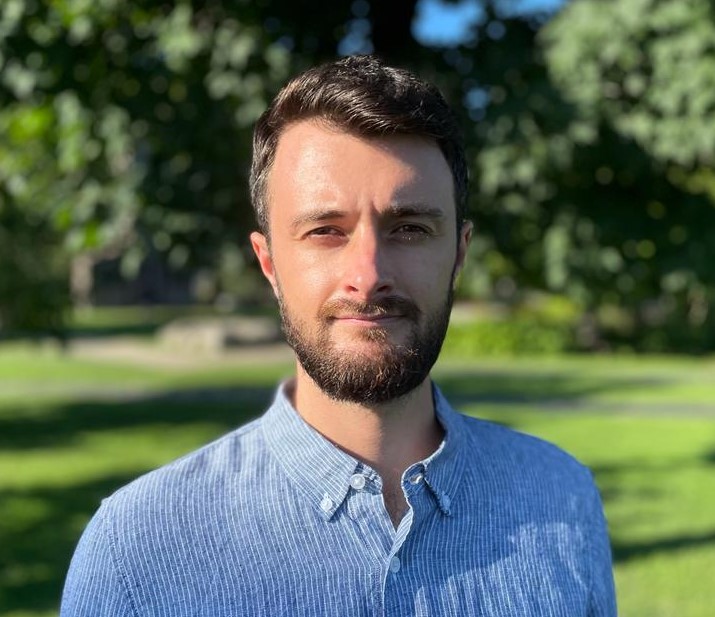
Alumni Highlight
Tuesday, August 16, 2022
Lawrence Robinson (he/him) graduated from the HRSMA program in October 2019. He recently published a chapter in the book Transitional Justice in Tunisia: Innovations, Continuities, Challenges. Lawrence adapted the research from his MA thesis to write his chapter titled From the Streets Up: Youth Leadership of Informal Processes to Transitional Justice in Tunisia.
Please share a little bit about your time in the HRSMA program, such as your research concentration, your favorite courses, your experience with the faculty, and any extracurricular activities.
During the HRSMA program, I focused on transitional justice and the realization of rights in post-conflict societies. I really enjoyed studying across a broad range of courses, such as International Human Rights Law, Socio-Economic Rights, Refugees, Forced Migration & Displacement, and Human Rights & Oral History. I found the faculty always offered time to engage deeply with the subject area and actively supported students to turn coursework interests into future research projects.
Please share the title of the book you were published in, your chapter title, and a summary of the chapter.
I authored a chapter in the book Transitional Justice in Tunisia: Innovations, Continuities, Challenges. The book engages comprehensively with the dynamics of the transitional justice process in Tunisia and its mechanisms, elaborating lessons for transitional justice practice globally.
My chapter, “From the Streets Up: Youth Leadership of Informal Processes to Transitional Justice in Tunisia,” explores the unique approaches, activities, and effects of young Tunisian activists mobilizing in pursuit of transitional justice after the revolution. The research found that young Tunisian activists, as they felt marginalized from the official process of transitional justice, commanded alternative spaces and methods to actively pursue a much broader social project of transitional justice from the bottom up. While there is a wide range of these alternative methods of mobilization, the chapter focuses on the ways in which Tunisian youth activists took command of the street and the arts as key spaces and vehicles for truth-telling, justice-seeking, and memory preservation.
Can you please discuss the process of adapting your MA thesis into a chapter suitable for a book like this?
I undertook this research for my MA thesis. After writing my thesis, an interviewee shared with me that a scholar was seeking contributions for a volume on the transitional justice process in Tunisia and encouraged me to share my research. I submitted an abstract of my research and my proposed contribution was accepted. To adapt the findings of the research project for the book, I had to re-draft and condense a lot of the contextual analysis, the literature review, methodology, and other sections. Most importantly, I was encouraged to make sure that the analysis spoke to the themes of the book and adjacent chapters. Throughout the drafting and review process, I received great feedback from the editors and other authors, which strengthened the positioning of the research findings.
What else have you done since you graduated from the HRSMA program?
Since graduating from the HRSMA program, I worked with Physicians for Human Rights in New York to support its international-level advocacy for justice and accountability in the wake of human rights violations. I later moved to Germany to work with the Global Refugee Sponsorship Initiative to guide the expansion of community sponsorship programs across Europe. Now based out of Canada, I continue to broaden my engagement from within civil society in support of human rights domestically and globally.
Do you have any words of wisdom for students currently enrolled in the HRSMA program?
I would advise any current or future HRSMA student to take full advantage of the research opportunities that come from the coursework and the thesis project. The program presents not just great opportunities to broaden your knowledge and see issues through a new lens but also encourages you to see the responsibility of undertaking a research project on human rights issues. Whilst undertaking my research project I found that interviewees were keen to participate and eager to see how I saw the results of the research. As advised during classes, I felt more and more how the research was a real responsibility – to listen, learn, analyze and produce accurate findings in a complex context.





